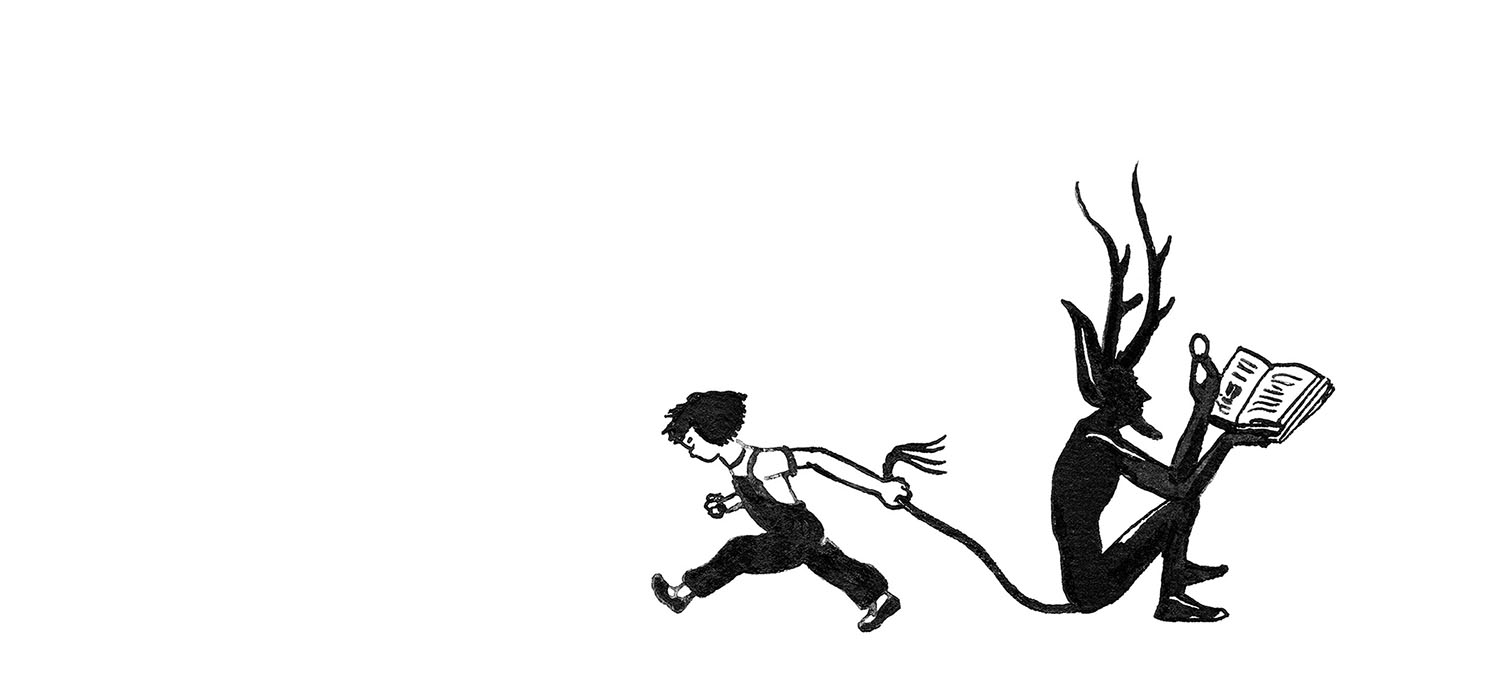Summer is the time of the child, a time to go barefoot in the grass, splash about in the creek, outrun the neighbor’s bull or the neighborhood bully. It is, even more gloriously, the time of the scamp, that subset in the Venn diagram of childhood, a creature of joyful and boundless energy.
The word scamp turns up in eighteenth-century English, though with dark meaning: A scamp was a highway robber, later an ordinary mugger, still later a swindler of any description. Charles Dickens, that master of the mot juste, employs it in The Pickwick Papers, with one character remarking of a firm of unscrupulous lawyers, “Those are the cleverest scamps I ever had anything to do with,” and another answering, “The sharpest practitioners I ever knew, Sir.” There’s no proven connection between scamp and the much younger word scam, but it’s a logical fit.
A truer etymology traces scamp to the verb scamper, something no self-respecting highwayman would do but that fits a chaotic kid to a T. With it, we move from marauding to mere mischief, from Dick Turpin to Tom Sawyer.
A literary case in point comes from the beloved children’s author Beverly Cleary, who died this spring at the estimable age of 104. A children’s librarian, Cleary wondered why the characters in kids’ books were prim, proper, and prissy, not like the children she knew in real life. In 1950, she answered with her novel Henry Huggins, its protagonist a perpetual-motion machine of a third grader. Cleary gave Henry a well-matched neighbor with a sequel in which Ellen Tebbits, the eponymous lead, takes endless delight in thwarting the designs of yet another scamp, Otis Spofford, a master of embarrassing pranks. But none of those children stands up next to Cleary’s holiest of all holy terrors, Ramona Quimby, a four-year-old capable of havoc that Otis can only dream at.
Those four characters, and literary kin such as Kay Thompson’s Eloise and E. L. Konigsburg’s Claudia and Jamie Kincaid, are scamps in the most affectionate sense of the term. It’s possible that they’re imps, too, although the senses of the word imp have changed as improbably as have those of scamp. The Old English impa was the shoot of a plant, which, by extension, came to refer to human offspring. By the time of the Reformation, when religious calumny was at fever pitch, British clerics were writing unkind things about the pope, as when one, in 1536, decried “dyvers sedicious…persones, being impes of the said Bisshopp of Rome.” (Pope Paul III, who admittedly had a few children, returned the favor by launching the Inquisition.) Thereafter imp took on a meaning observed until recent times: An imp was an offspring of the devil or suchlike malevolent force, as when Joseph Glanvill, the pioneering psychic researcher, averred in 1667, “the Imps of Witches are sometimes wicked spirits…that have been Sorcerers…in this life.”
If you see a four-year-old with horns and a trident or a third grader in a wizard’s hat, then, don’t scamper—run. Otherwise, give scamps and imps their room to revel in noncriminal, nondemonic, summery childhood.







